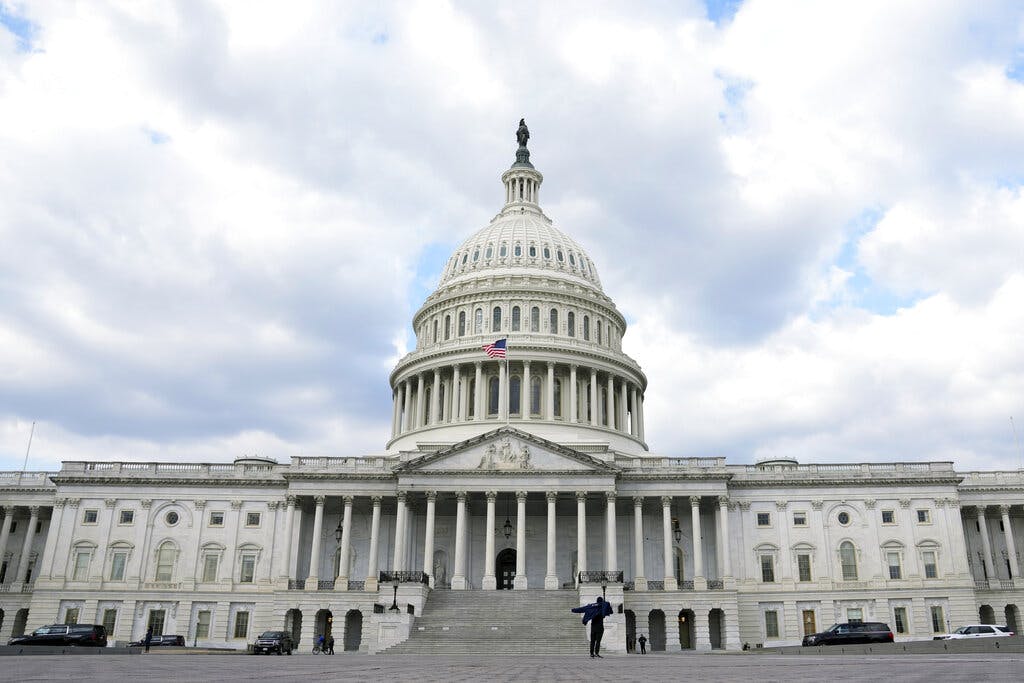Interest Groups Pessimistic About Potential Government Shutdown
Most ‘K Street leaders,’ lobbyists in other words, see a government shutdown coming before October 1.

A new survey shows that most lobbyists think a government shutdown is on the horizon after Congress adjourned for the August recess without passing any of the 12 appropriations bills that are due at the end of September.
A new survey of “K Street leaders” from Punchbowl News and the Canvass reports that 65 percent of those surveyed believe the government will likely shut down on October 1, and 80 percent think a government shutdown is likely before January 1.
K Street is a Washington, D.C., designation for an area that is the center of lobbying, advocacy, and special interest groups in the city, organizations that have a vested interest in understanding the workings of Congress. The pessimism among the “K Street leaders” appears to affirm the recent decision by Fitch Ratings to downgrade America’s debt to AA+ from AAA.
The core of the problem facing Congress in terms of passing the required 12 appropriations bills is that House appropriators, on one hand, are marking up bills containing funding levels well below those negotiated in the debt ceiling compromise struck between Speaker McCarthy and President Biden.
The Senate, on the other hand, moved all 12 appropriations bills out of committee ahead of the August recess and did so on a bipartisan basis.
Adding pressure to the situation is the schedule. Congress will return after Labor Day and will need to clear all 12 appropriations bills before September 30, the end of the federal fiscal year.
If they don’t, lawmakers will need to pass some sort of stop-gap funding measure to give themselves more time or face a government shutdown. If they fail to pass these bills by the end of the year, there will be a 1 percent across-the-board cut, a provision of the debt ceiling deal.
The pessimism on K Street comes shortly after a credit rating agency, Fitch Ratings, downgraded America’n’s debt due to what it called “a steady deterioration in standards of governance.”
The agency cited the debt ceiling negotiations from early this year as well as the January 6, 2021, attack on the Capitol as contributing factors to their decision to downgrade the country’s debt.
“You have the debt ceiling, you have January 6. Clearly, if you look at polarization with both parties … the Democrats have gone further left and Republicans further right, so the middle is kind of falling apart basically,” a senior director at Fitch, Richard Francis, told Reuters.
Fitch also pointed to the government’s financial situation, including “weaker federal revenues, new spending initiatives and a higher interest burden,” in explaining its decision to downgrade American debt.
Reacting to the downgrade, the White House press secretary, Karine Jean-Pierre, said in a statement that “we strongly disagree with this decision” and blamed “extremism by Republican officials” for the downgrade. Other White House officials and Democrats in Congress said more of the same.
Members of the House Freedom Caucus, a group at the right flank of the House GOP conference that played a major role in debt ceiling negotiations and has led the GOP charge to make further cuts beyond what they agreed to in the debt ceiling deal, went on to blame the amount of the nation’s debt.
“While concerns about Fitch’s history of subjective ratings changes are certainly warranted, there is no question that our nation’s debt is unsustainable,” Congressman Blaine Luetkemeyer said in a statement.

